Probiotics: Myth or miracle? What we should know about these friendly bacteria
Probiotic products are all the rage as well as a multibillion-dollar industry. But are they necessary, and is it possible to overdose on them? The programme Talking Point gets the answers.
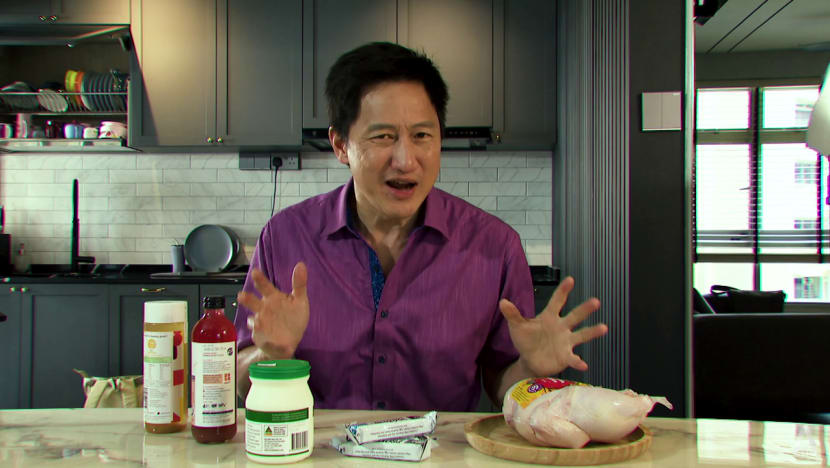
Probiotics are everywhere, from yoghurt to kombucha to chicken, as Talking Point host Steven Chia discovers.
SINGAPORE: Winnie Ong remembers being “very sceptical” about the health benefits of kombucha, a fermented tea known to be rich in probiotics, when she was first introduced to it.
But after brewing her own kombucha and drinking it over a period of two weeks, she saw a marked improvement in the eczema and rashes she was dealing with at the time. “That’s how I became a believer,” she said.
Today, she runs kombucha-making workshops at local brewery Craft and Culture, which she co-founded.
Probiotics, or live bacteria and yeasts, now seem to be all the rage. They can be found on the labels on foods ranging from cereal bars to chicken products.
According to market research firm Meticulous Research, the global probiotics market is expected to reach US$75.9 billion (S$105.9 billion) by 2027, at a compound annual growth rate of 5.6 per cent from 2020 until then.
But do probiotics really work? Is it necessary to take a daily supplement? The programme Talking Point finds out.
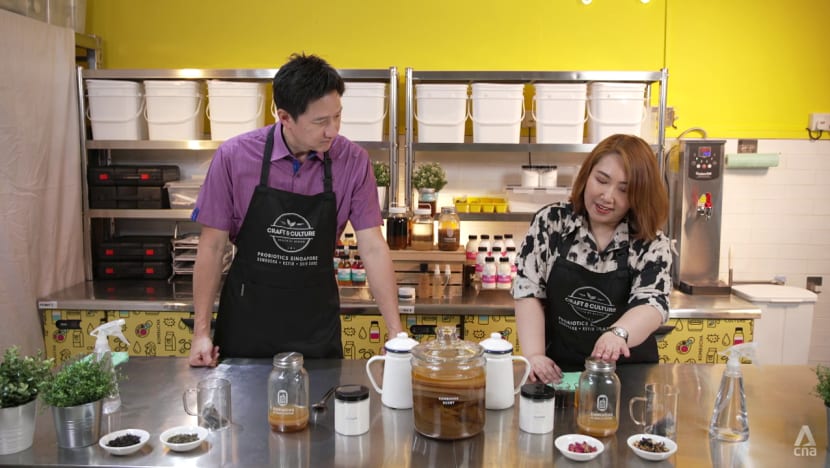
HOW BEST TO REAP THE BENEFITS
It starts with the gut, which includes the mouth, oesophagus, stomach, small intestine and large intestine.
The gut has trillions of bacteria, viruses and fungi known as the gut microbiome, which plays an important role in one’s health by helping to regulate digestion, the immune system and metabolism. It can even influence one’s mood.
Probiotics help by secreting compounds that grow good intestinal bacteria and restore the balance between good and bad bacteria in the gut, according to gastroenterologist Loh Poh Yen.
An imbalance can have a disruptive effect, whereby allergens, bacteria and toxins “cross into the intestine and subsequently activate the immune system in the bowels”, said the doctor from Farrer Park Hospital. “That can lead to a lot of diseases.”
These could range from allergic reactions, such as eczema and asthma, to conditions like irritable bowel syndrome.
There are some things to note about probiotics, however, to reap the most benefits.
One main consideration is whether the probiotics are still alive, and if so, how many microbes there are in the food item, according to William Chen, the director of Nanyang Technological University’s Food Science and Technology Programme.
To be labelled “probiotic”, noted the professor, the food item must contain at least a billion CFUs, or colony forming units, which represent the number of bacteria in each serving.
But a probiotic product can lose potency if it is not stored properly or sits on the shelf for too long.
“Ideally, the lower the temperature, the better,” he said. “Bacteria grow more slowly at a lower temperature, but faster at a high temperature.”
The CFU number on the label is typically the number at the date of packaging, he added. But the company will not be monitoring how long a product was on the shelf before it was bought.
So “no one knows” how many microbes is taken in at the time of consumption, said Chen, who advised paying attention to the expiry date. “Don’t buy too much and then put (the food) in the fridge for too long.”
As for the type of foods to eat, in general, fermented foods are good for gut health because they are easier to digest, according to Jeremy Lim, chief executive officer of precision gut microbiome company Amili.
The fermentation process also allows probiotics to multiply.
WATCH: Probiotics — are they really necessary? (23.49)
Besides, these foods contain “other goodness”, noted principal dietitian Bibi Chia from Raffles Diabetes and Endocrine Centre. For example, kimchi has fibre and lactic acid, while yoghurt contains protein and calcium.
This is why she recommends against favouring probiotic supplements over the foods. But if one were looking for a supplement, she suggested that one should consider the number of different strains it contains.
“If you look at the bottle, it generally will tell you what the different types of strains are,” she said. “Different strains mean they are of different bacteria … almost like different species.”
For general well-being, she added, the more strains the supplement contains, the better. “But for certain health conditions, you might want to target the specific strains studied (that benefit) that health condition.”
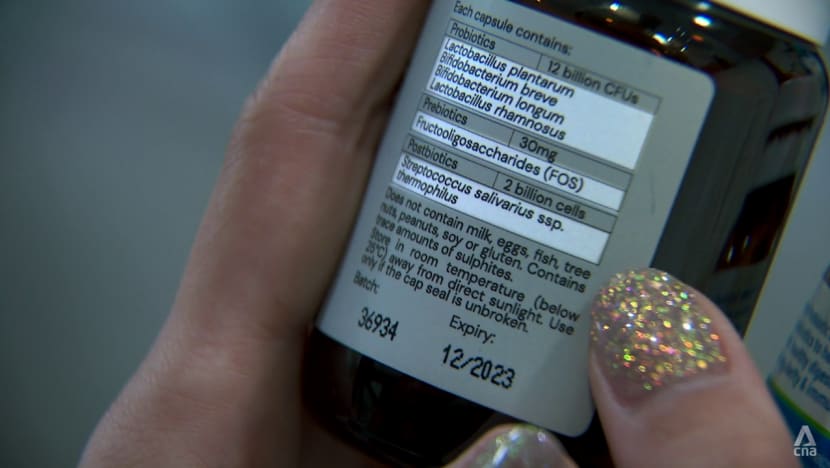
Probiotics cannot be a one-size-fits-all solution, as Talking Point host Steven Chia discovered after he brought a stool sample to Amili’s laboratory in order to determine his gut health.
According to the test analysis, while his gut was generally healthy, there were three areas for improvement.
He was not producing much serotonin, a hormone that affects mood and sense of well-being; he had a high level of Trimethylamine N-oxide (TMAO), a chemical produced in the gut that is associated with poorer heart health; and his overall metabolism.
Accordingly, four specific foods that would benefit him were recommended to him: Natto (Japanese fermented soya beans), miso soup, idli (a South Indian fermented rice cake) and Pu-erh tea. He was also prescribed supplements formulated for his health profile.
“When we talk about these probiotics, there are literally hundreds of different strains,” noted Lim. “Some of them can be good for you, (while) you already have enough (of some others).”
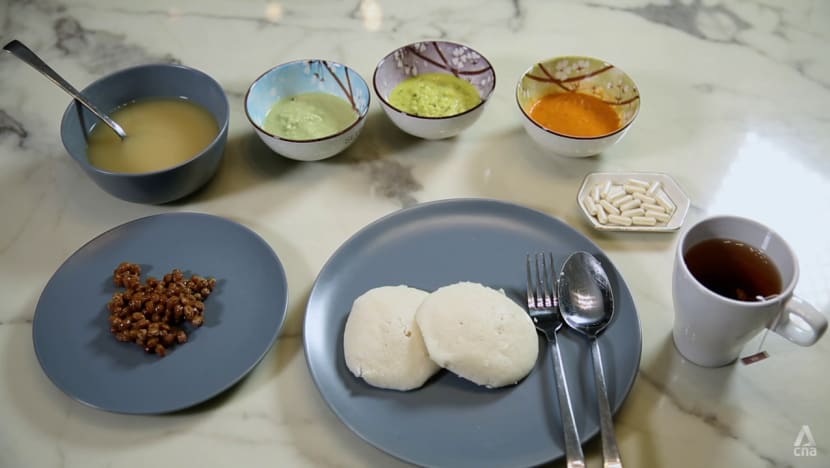
DOES A ‘PROBIOTIC DIET’ WORK?
Chia incorporated the foods into his diet for two weeks, after which a second analysis showed that while his serotonin production had not improved, his TMAO levels were brought within the normal range, thereby lowering his risk of heart disease.
The results also showed that the efficiency of nutrient absorption in his gut had improved.
Lim noted, however, that the test Chia took — called Bio and Me — is a wellness test and is not meant for diagnostic evaluation or medical purposes.
“This is for those who are interested in how their microbiomes look like and how to live their lives to the fullest from a gut health point of view,” said Lim, who is also an associate professor at the National University of Singapore’s Saw Swee Hock School of Public Health.
But is it necessary to enhance one’s diet with probiotics?
If one has a balanced diet and avoids smoking and excessive drinking, then probiotic supplements are unlikely to be needed, according to Melvin Look, a general surgeon practising at Mount Elizabeth Novena Specialist Centre.
“If your gut is functioning healthily, it should be able to balance itself,” he said. Some early warning signs of an unhealthy gut include irregular bowel habits and susceptibility to diarrhoea or food poisoning.
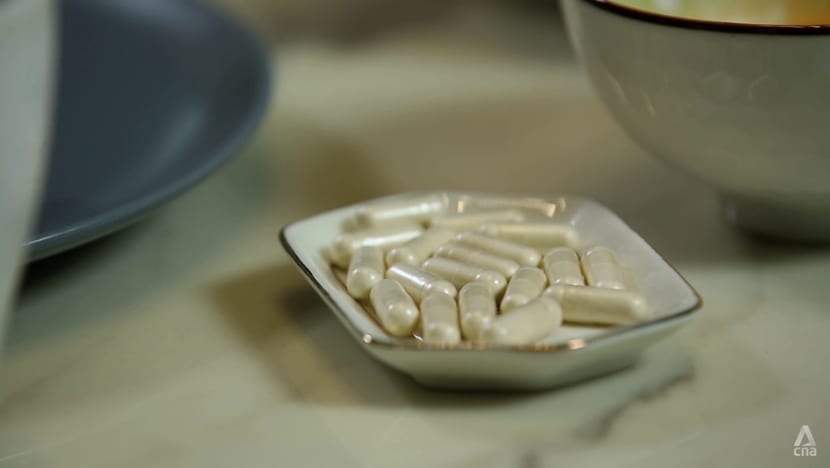
But foods rich in probiotics are a “good idea”, he added, as they are an “essential part” of a balanced diet. And probiotic supplements can help in times of illness when one’s immunity is low.
While he noted that probiotics are safe — and consumers cannot “overdose” on them — there may be side effects from eating a lot of fermented foods, whose high levels of amines can irritate the brain and cause headaches in some people.
Consuming a lot of probiotic foods and supplements may also cause fermentation in the gut, which could result in abdominal bloating and discomfort in some people.
Watch this episode of Talking Point here. The programme airs on Channel 5 every Thursday at 9.30pm.





















